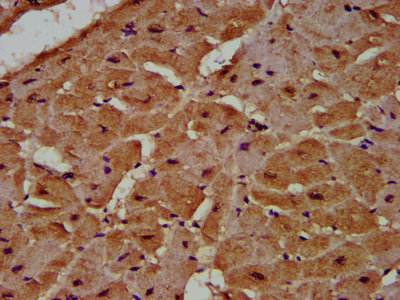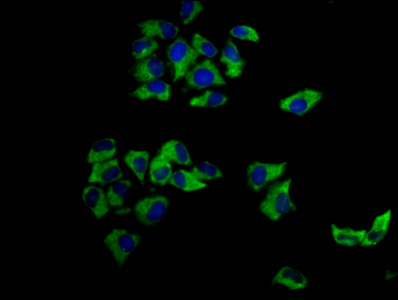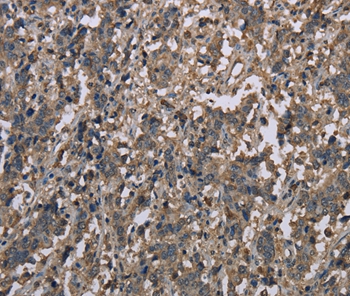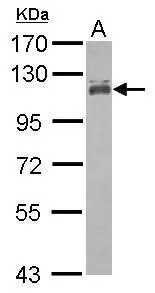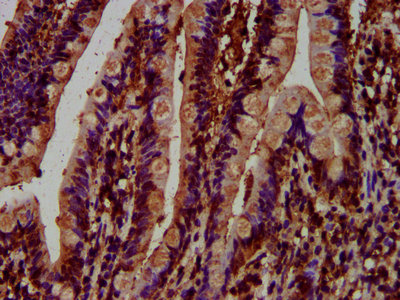
IHC image of CSB-PA013571LA01HU diluted at 1:500 and staining in paraffin-embedded human small intestine tissue performed on a Leica BondTM system. After dewaxing and hydration, antigen retrieval was mediated by high pressure in a citrate buffer (pH 6.0). Section was blocked with 10% normal goat serum 30min at RT. Then primary antibody (1% BSA) was incubated at 4°C overnight. The primary is detected by a biotinylated secondary antibody and visualized using an HRP conjugated SP system.
MCC Antibody
CSB-PA013571LA01HU
ApplicationsImmunoFluorescence, ELISA, ImmunoHistoChemistry
Product group Antibodies
ReactivityHuman
TargetMCC
Overview
- SupplierCusabio
- Product NameMCC Antibody
- Delivery Days Customer20
- ApplicationsImmunoFluorescence, ELISA, ImmunoHistoChemistry
- CertificationResearch Use Only
- ClonalityPolyclonal
- ConjugateUnconjugated
- Gene ID4163
- Target nameMCC
- Target descriptionMCC regulator of Wnt signaling pathway
- Target synonymsMCC1, colorectal mutant cancer protein, MCC, WNT signaling pathway regulator, mutated in colorectal cancers
- HostRabbit
- IsotypeIgG
- Protein IDP23508
- Protein NameColorectal mutant cancer protein
- Scientific DescriptionCandidate for the putative colorectal tumor suppressor gene located at 5q21. Suppresses cell proliferation and the Wnt/b-catenin pathway in colorectal cancer cells. Inhibits DNA binding of b-catenin/TCF/LEF transcription factors. Involved in cell migration independently of RAC1, CDC42 and p21-activated kinase (PAK) activation (PubMed:18591935, PubMed:19555689, PubMed:22480440). Represses the beta-catenin pathway (canonical Wnt signaling pathway) in a CCAR2-dependent manner by sequestering CCAR2 to the cytoplasm, thereby impairing its ability to inhibit SIRT1 which is involved in the deacetylation and negative regulation of beta-catenin (CTNB1) transcriptional activity (PubMed:24824780).
- ReactivityHuman
- Storage Instruction-20°C or -80°C
- UNSPSC41116161

